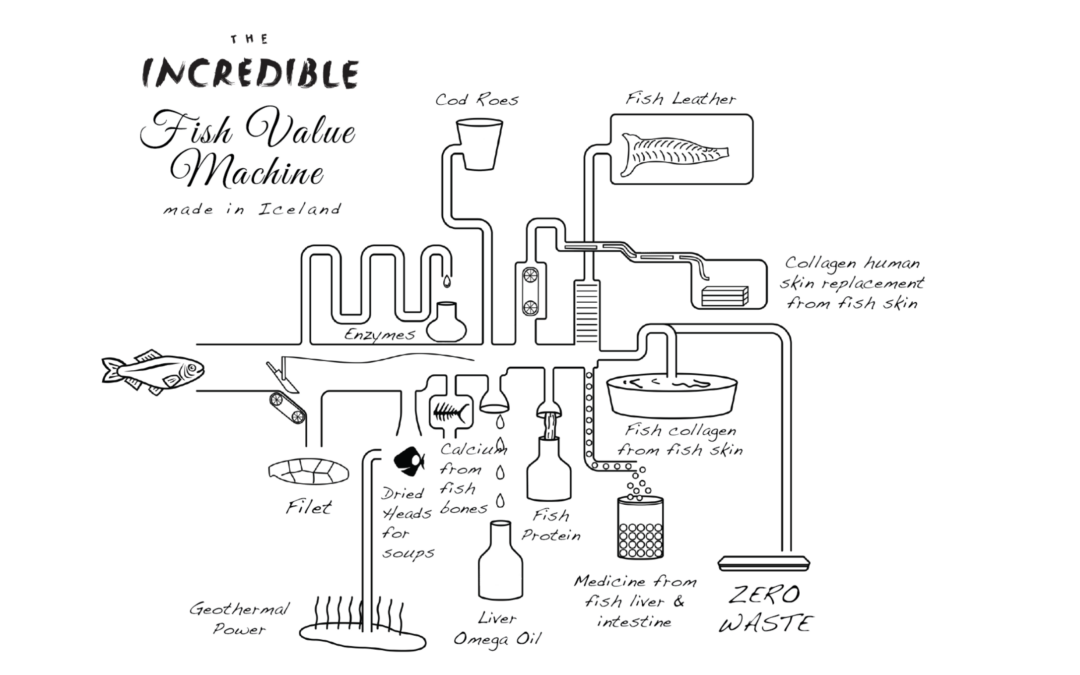As reported by the New England Ocean Cluster, “The Incredible Fish Value Machine” displays how Icelanders have produced “an industry fishing machine” which takes pride in the fact that no other whitefish nation is utilising more of each fish than Icelanders. While in typical North Atlantic fisheries the head, gut and bones of every cod are discarded, in Icelandic fisheries we have become used to making money out of many of these by-products. Analysis done by the Iceland Ocean Cluster indicates that Icelanders utilise 80%+ of each cod while many neighbouring countries make full use of only around 50%. The study indicates over 500 thousand tonnes of cod are discarded into the sea or as waste in the Barents Sea region and across the North Atlantic from Newfoundland to Norway.
There is no single explanation for this huge difference in utilisation. Partly it may be explained by the fact that unlike the year-round long fishery in Iceland, many fishing nations have short fishing seasons with massive amounts landed over a few months, making it difficult to process such raw material efficiently. Secondly, the integration between fishing and processing in Iceland through common ownership is not usually the case among other seafood nations. Finally, and maybe most importantly, the seafood industry is often located in marginalized places and is not in touch with R&D, investors, accelarators etc. Steve Case writes in “The Third Wave”: “Over the next two decades we will see cities that were once marginalized become entrepreneurial powerhouses”. Case points out that “there is appeal to putting down roots where industry ecosystems already exist”. But even in areas where R&D, Universities and investors are close to the seafood eco system we still do not see all the dots connecting. This lack of ties is probably the most important reason why so much seafood protein is used for landfill in many countries. The key to creating the “incredible fish value machine” is to build the bridge between these important parts of the seafood cluster.

